-
Composer
- Commissions, Awards, Collaborators & Typesetting
- Downloadable Choral Music (Church) >
- Downloadable Instrumental Music (Church) >
- Published Choral Music (Church)
- Downloadable Choral Music (School & Community) >
- Published Choral Music (School & Community)
- Downloadable Instrumental Music (School & Community)
- Downloadable Vocal Exercises
- Hymn Writer
- Teacher
- Minister
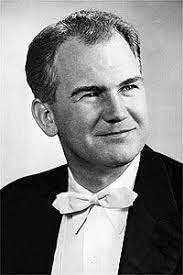 Driving a bright red sporty car, a New Yorker arrived at Oklahoma Baptist University in 1936 to become at the time the youngest college dean in America. In 1977, wearing a bright red jogging suit, he leaped onto the chancel in B.B. McKinney Chapel at Oklahoma’s Falls Creek Baptist Assembly. It was there I first experienced Warren Matthewson Angell, a whirlwind of a conductor, composer, and educator. Disregarding an age requirement, at age eleven I had sneaked into the chapel to sing in the Falls Creek Choir, not knowing my subversive act would introduce me to someone who would forever influence my life and work. I eagerly returned each summer to learn from him. With effective teaching, inspiring words and expressive conducting, he revealed to me the power and beauty of the choral music experience. He had been instrumental in developing the concepts and curricula for music ministry among Baptists, and I knew in those summers before college that I wanted to attend his college of fine arts. Though retired by the time I arrived at his namesake, “Warren M. Angell College of Fine Arts" at OBU, I was overjoyed during those years to develop a relationship with "Dean" Angell (as he was called even past retirement). In college I sang in the university's Bison Glee Club he founded, and was selected by him to sing in the Club's "Fallen Angells" Quartet which rehearsed in his home. I gleaned from his work by attending local choral workshops he led, and reveled in his storytelling during several dinner opportunities together. During a Bison Glee Club alumni tour to Hawaii, I was fortunate to be his roommate, providing an extended opportunity to pick his brain on all things church music. He attended my senior composition recital, and while in seminary, I was delighted to attend the university's celebration of his 50th year since arriving at OBU. When serving as a Minister of Music in South Carolina, I was thrilled to host him in concert and worship at two churches and visit him in his Black Mountain, North Carolina, home. Through the years we corresponded through postal mail where he continued to offer his advice and encouragement. As a music theory and composition major I was keenly interested in Dean Angell's compositions, and we had discussions on the compositional process. He was a prolific composer and arranger of choral, congregational and keyboard music, and was known to dedicate some of his works to friends and students. In 1999, preparing to depart Greenwood, South Carolina, after visiting my family for what would be the last time, he said to me: "If there's anything I can ever do for you...." and, leaving his statement open-ended, I responded: "Just 16 bars!” Though the conversation went no further, he knew exactly what I meant, and several days later I received in the mail a composition for piano! The title was also the dedication:"16 Bars for Larry, Cindy, Kelly & Ryan." In addition to all I had learned and received from him since I was eleven, I was filled with gratitude that the 92-year-old composer had granted my wish! The piano piece (exactly 16 bars) is "classic Angell" in its melodic and harmonic expression. Knowing a bit about his creative process, it seems he conceived the rhythmic motion of the melody by mimicking the two-syllable names of each person in my family. Ever the educator, the final chord of the composition is indicated on the score by him as a "chime,” calling attention to the keyboard properties and harmonic structure he used to produce that particular effect. At the end of the hand-written manuscript dated 9-11-99, is a personal message, revealing the Dean’s characteristic sense of humor. The composition’s tempo marking includes the added instruction: “with feeling” - indicative of how Warren Angell approached music and life. 16 Bars for Larry, Cindy, Kelly & Ryan Piano Composition by Warren Angell Music © 1999 Warren M. Angell. Recording:
16 Bars for Larry, Cindy, Kelly & Ryan Composed by Warren Angell Performed by Larry E. Schultz Many individuals, including myself, consider Warren Angell a mentor. His legacy continues in ministers of music, church musicians, educators, choral conductors, composers, and in persons in professions other than music. I'm thankful for his long and productive life (1907-2006) that brought instruction and inspiration to many! In 2012, a text by my collaborator, Jann Aldredge-Clanton, seemed especially appropriate for me to compose as a choral anthem in memory of Dean Angell. Gathered Here to Share Our Music celebrates diverse humanity and the power of music that Warren Angell knew could transform the world. An Interview of Warren Angell Produced in 1987 by the Radio and Television Commission of the Southern Baptist Convention In response to the news that my influential high school music teacher. Jerry Burdick, passed on May 8, 2023, I offer these memories in tribute. First Meeting... I first met Mr. Burdick in seventh grade when he came to Tulsa’s Clinton Junior High School and sat down beside me at the electric piano I was to play as a new member of the school’s jazz band. Never having played in a rhythm section before, I listened as Mr. Burdick patiently explained to me what it was to “comp” at the piano keyboard. The seeds of creativity he planted in that initial lesson would provide me with a love of playing in jazz bands through college and would later blossom to influence my work as a composer. Learning from a Skilled Educator... I entered Mr. Burdick’s marching band at Daniel Webster High School with several of my friends in ninth grade. Though our freshmen class was still housed at Clinton Junior High, we’d walk over to Webster on beautiful fall or cold winter mornings to learn from this master teacher. Throughout my high school experience in his marching, concert and jazz bands, Mr. Burdick exemplified the best in education and musicianship. It was his clear conducting technique I mimicked in my teenage church music jobs and upon entering Oklahoma Baptist University as a music major. Many Valuable Lessons... Not only did I learn to comp at the piano, effectively play my trumpet, and conduct from Mr. Burdick, but by example he taught unparalleled organizational skills, and what it meant to be an upstanding and caring citizen in the community. As an active and long-time church musician, his life of faith and concern for all people was evident. I also learned to value “quality over quantity” from Mr. Burdick. Though our high school marching band was the smallest in the city of Tulsa, it didn’t keep us from winning a city-wide marching band competition in spite of the twelve other bands that were two and three times our size. We won because Mr. Burdick inspired us individually and collectively to give our best, and we also won because of his forward-thinking creativity. Our show wowed the judges with rotating square formations and other new marching techniques of drum and bugle corps that had not yet spread throughout high school bands. This win was especially meaningful that year as, due to low enrollment, the possible closing of our high school was threatened. After the win a billboard proudly proclaimed our success to the entire city and in my estimation helped to keep our school open. Quality over quantity had prevailed and provided a valuable lesson for my work in church ministry. Expanding Musical Horizons... Mr. Burdick expanded my musical horizons in many ways, contributing to my work as a Minister of Music, composer, hymn writer and teacher. In the churches of my childhood, I mostly experienced the music of American gospel hymns, but in high school concert band, Mr. Burdick exposed my mind and ears to gifted composers from around the world including England’s Ralph Vaughan Williams and Gustav Holst. In high school I was so enthused by playing the band transcription of Holst’s The Planets, that I engaged in an individual study on Holst in college. This study was important to my theory and composition degree at Oklahoma Baptist University, and I was deeply honored when Mr. and Mrs. Burdick drove miles to attend my senior composition recital at OBU. A Grateful Opportunity... One often loses touch with high school teachers after graduation, but after graduating seminary and entering full-time music ministry, I was commissioned by my friends, the Burdick children, to write a composition for their father as a surprise to celebrate his 60th birthday and 30 years as Director of Music for Epworth United Methodist Church, Tulsa. I tried to “pull out all of the stops” for Mr. Burdick, demonstrating in the composition both the joy and skills of music-making he had instilled in me. I think of him each time I conduct a choir in singing the resulting psalm setting, Play Skillfully and Shout with Joy! An Amazing Story... Though I would hear about Mr. and Mrs. Burdick through the years from their children or other West Tulsans, I did eventually lose touch with their whereabouts. And my life’s work had taken me and my family to Raleigh, North Carolina. But eventually, I experienced an unbelievable reconnection… My mother and father-in-law were exploring assisted living communities in the Charlotte, NC, area. One weekend my wife and I traveled to Charlotte to help with their search. While taking a tour of a facility, I noticed a piano, and commented that my mother-in-law was a fine pianist and would enjoy playing. The employee giving us the tour then said to me: “We also have a wonderful gentleman who comes once-a-week to play for the residents…His name is Jerry Burdick.” At that instant I let out the loudest “WHAT!!!” one can imagine! I then said: “Jerry Burdick is my beloved high school music teacher from Oklahoma!” The employee did not have to give his name, but I’m glad she did (along with his phone number)! The Burdicks were now in North Carolina! Immediately upon arriving back home I called the Burdicks to catch up and tell them this amazing story. And there’s more… In 2018 I had the opportunity to compose We Are a People on a Journey for the 75th Anniversary of Myers Park Baptist Church in Charlotte. In January of that year, I would get to attend worship there for the premiere of the hymn. This provided the wonderful opportunity to see my influential high school teacher and his wife, as I spent time that weekend with Jerry and Phyllis in their beautiful home. But the best part was that the Burdicks accepted my invitation to join me at Myers Park for the premiere! This was truly a full-circle moment. As the church’s pianist improvised on my tune for the prelude that morning, I was transported back to seventh grade when Mr. Burdick taught me to improvise. As the brass quintet, timpani and pipe organ played the introduction to my hymn, I remembered how my musical horizons were expanded in Mr. Burdick’s band to be able to envision and compose such sounds. And as the choir and congregation sang, I gave gratitude for the influence and presence of the Burdicks on this special day. Deep Gratitude... I am not the only student shaped and inspired by Jerry Burdick. I join countless others in giving thanks for his life and meaningful work that continues to thrive in us all. Phyllis Burdick, Larry E. Schultz & Jerry Burdick at Myers Park Baptist Church, Charlotte, North Carolina. January 21, 2018.
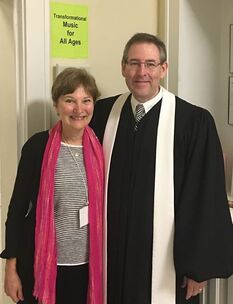 Years after being influenced and inspired by the work of hymn poet, Brian Wren (see previous blog post), I met Jann Aldredge-Clanton with whom I have collaborated since 2001. Jann is a minister, author, English professor, lyricist, hymn poet, hospital chaplain and feminist theologian (quite qualified to write effective and prophetic words for the church!). In the spring of that year, I heard Jann offer the Covenant Address for the Alliance of Baptists Convocation. She powerfully encouraged congregations to discover and reclaim images of the Divine Feminine – and to sing them in worship. She underscored the biblical foundations and the many reasons to sing of God as “She” and “Her” – not the least of which was to liberate all from oppressive patriarchy and to exclaim the truth that females are in the Divine Image. Several months after hearing Jann’s address, I became Minister of Music for Pullen Memorial Baptist Church, Raleigh, NC. With her words still ringing in my ears and a congregation eager to sing of the Divine Feminine, I reached out to introduce myself to Jann. Revealing I was a composer, I asked if she had any texts I could set to music. On September 11, 2001 (a morning that was met with unspeakable tragedy), I discovered an email from Jann that included a hymn text for me to set. The text she sent, “Are You Good and Are You Strong?” was a theodicy (questioning the presence of goodness in midst of evil). The words were unbelievably timely and cathartic for the particular day on which I received them. A musical, curriculum, anthems, 5 song collections and 378 hymns later, Jann and I are still collaborating! Though I have provided new tunes and arrangements for many of Jann’s hymns, I have typeset all of them for our collections, and in doing so, have continued to be a student of her ministry. Works by Jann Aldredge-Clanton & Larry E. Schultz Feminist theology, like other specific theologies, intersects with many areas of thought, study, concern and celebration. The works Jann and I have created together support these areas and engage justices of all kinds – from gender and racial to economic and ecological. With ever-evolving language, we seek to provide words and music for worship that uplift all persons of innumerable and wonderful descriptions.
Welcome to LarryESchultz.com and Resonate! – a site offering downloadable and published music for faith, school and community groups, and a blog that offers notes on the music and other items of interest related to communal music and music-making.
I describe my work as “communal,” because both my ministry and compositions seek to assist groups (choirs, congregations, orchestras, bands) whose individual participants make music together. I also use the word “communal” to communicate that all persons are musicians and are welcomed into the experience of music-making. It is a part of what makes us human, and is not an exclusive opportunity for the “trained.” A seminary course on “The Philosophy of Music Ministry,” taught by gifted educator, Milburn Price, instilled within me the importance of developing and communicating a philosophy that supports and meaningfully directs my work. Though my initial philosophy of music ministry was bound to church history, church tradition and the Hebrew/Christian scriptures, it has evolved through the years to include more. Ever since reading John Shelby Spong’s book, “A New Christianity for a New World,” I have been on a quest to provide a music ministry and creative works that break down religious and social barriers. Spong encourages all to walk so deeply through their own tradition and into their humanity that the tribalistic boundaries fall away. We then discover our connections with other people, and the oneness of all. Like the efforts of present-day scientists who are seeking a “theory of everything,” I’ve been seeking such a theory related to communal music-making, and have borrowed three words that I hope for now succinctly state my ideas: Resonance, Transcendence and Relevance. So far, I find that these three words encompass the goals and outcomes of communal music-making, whether it be in church, other faith groups, school or community settings. (Though sometimes needed for clarity, I hesitate to use the words “sacred” or “secular” as I find them to be inadequate descriptions that can bring further division.) I’ll speak to Transcendence and Relevance in future posts, but want to briefly express my thinking on Resonance (and therefore, the name of this blog: Resonate!). Though science cannot yet empirically prove it, “String Theory” as posited by quantum physicists is a beautiful description that I think can pertain to a philosophy of music-making and music ministry. String Theory suggests that the smallest elements of literally everything are tiny vibrating “strings.” Smaller than other sub-atomic particles, these vibrations make up all that is – from the computer keyboard on which I am typing to my own human cells. These vibrating strings may indeed turn out to be the common denominator of all things. Not only are the smallest elements of life thought to be vibrations, but in 2003, astronomers discovered that a supermassive black hole in space was producing sound waves that created the deepest note yet detected from any object in the known universe! Human biology and anthropology come in next. We humans have evolved with lungs to fill with air and a larynx through which to pass that air causing vibrations of sound. As humanity grew, we developed language out of that sound – words that convey meaning. After considering all of this, I then am in awe, and wonder as I think: “If the tiniest quantum element as well as one of the largest known objects both vibrate with sound (music), and if humans ‘in the middle,’ also have the capacity to resonate sound…then there must be something very formational and primal to the experience of music-making. It must be foundational to our humanity, it must connect us with ‘everything,’ and there must then be benefits to music therapy, music ministry and communal music-making of any kind!” I'm not alone in these scientific ponderings. I know of at least two other hymn writers, Brian Wren and Jann Aldredge-Clanton, who have included the specific idea of String Theory in hymns, and others like Shirley Murray and Thomas Troeger express ideas from science in their hymn poetry. I have connected scientific reality with faith-language metaphor in my hymn, Spirit of God, Spark of Creation. When groups gather to make music, sound waves from one individual are produced and carried through the air until they are detected in the ear cells of other individuals. There is then an instant and physical connection! Music-making literally unifies and connects individuals into one community – a good foundation on which to build a more peaceful world. (For choral expressions that connect to this idea, see my compositions: Where Two or Three, May a Song Remain, Gathered Here to Share Our Music, Tear Down the Walls and others.) And so, the name of this blog, Resonate!, refers to our human capacity to make music with all that is, and the exclamation point reminds us to do so with joy and energy. The name also reminds us that when we add words to our music, we can give emphasis and meaning to important ideas and philosophies with which we “resonate.” (Several congregational hymns I hope assist progressive communities in resonating their ideas are: We Are a People on a Journey, From Wisdom Emerging, and A Stranger, Starving on the Street). Not all of the words to every composition I’ve written are as progressive as I’d desire them to be, but even these creations represent a part of my journey and can reveal an ever-evolving progression – one that continues and is life-long. I hope on this site you find a choral anthem, congregational hymn or instrumental selection that is useful in your community, and I look forward to offering additional works in the days to come. |
AuthorLarry E. Schultz is a Minister of Music, composer, hymn writer and teacher. Archives
July 2023
Categories
All
|
Copyright 2024 Larry E. Schultz. All rights reserved.
-
Composer
- Commissions, Awards, Collaborators & Typesetting
- Downloadable Choral Music (Church) >
- Downloadable Instrumental Music (Church) >
- Published Choral Music (Church)
- Downloadable Choral Music (School & Community) >
- Published Choral Music (School & Community)
- Downloadable Instrumental Music (School & Community)
- Downloadable Vocal Exercises
- Hymn Writer
- Teacher
- Minister


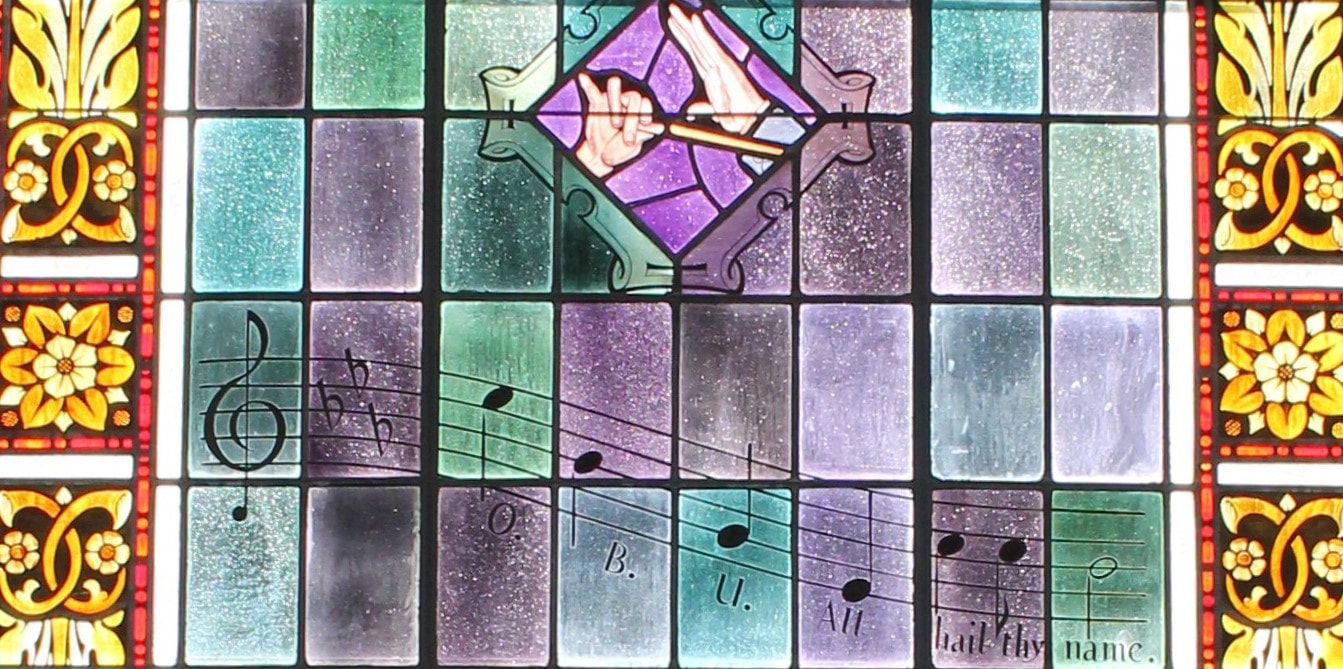
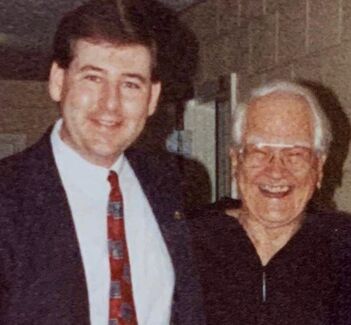
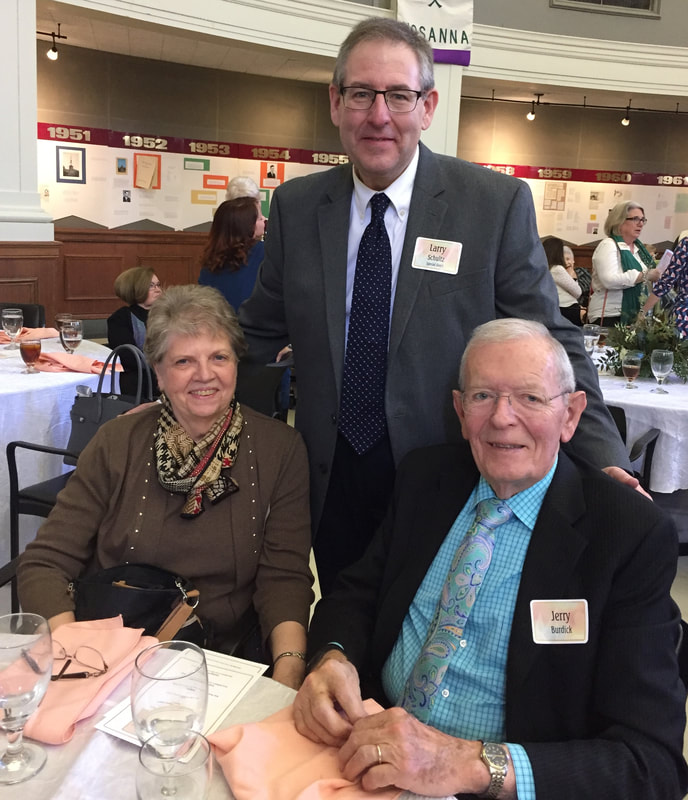
 RSS Feed
RSS Feed